The not-for-profit law firm is not a euphemism for losing money. Katharine Freeland talks to lawyers who are billing clients for whole new reasons
The low down
There are 31,500 community interest companies (CICs) in the UK, but only a handful are law firms. To promote a ‘social purpose’, these firms have committed to ‘wealth-sharing’ and no profit-taking. With the private practice sector focused firmly on profits per equity partner as its measure of achievement, have these not-for-profit firms found a new metric for success? And, perhaps, rewards unavailable to their peers in standard commercial firms? The purpose might be to generate funds for food banks from corporate transactions, or to subsidise a commitment for legal advice to society’s most vulnerable people. Yet CIC law firms are clear on one thing – in a not-for-profit firm, the bottom line is still front of mind.
Reimagining the law firm model is a perennial topic of conversation for legal professionals. Only a lucky few are temperamentally suited to the tyranny of billing targets, jockeying for partnership and the strain that on-demand client service puts on family and relationships. As Gen Z pass out of education and into the workplace, what has been termed by jaded leavers as ‘the hamster wheel of crap’ is not an inviting prospect. These individualistic young lawyers are more likely to prioritise decent work/life balance and fulfilment through social purpose than boast about pulling all-nighters.
Many experienced lawyers too, approaching the career danger zone of their fifties or simply weary of the cut and thrust, crave something different. The not-for-profit firm could be the answer.
A ‘wealth-sharing firm’ may be a more accurate description. Like their mainstream competitors, these firms are commercially driven, offer a good living and prize excellence. Although few in number and differing in outlook and mission, they all provide the tantalising promise that lawyers can do stimulating work while giving something back to their communities.
The Legal Services Act 2007 opened the door to alternative business structures as a different option to traditional partnerships and LLPs. Eighteen years later, the most popular legal model in the UK is the private limited company, accounting for 56.6% of law firms according to recent Solicitors Regulation Authority statistics (See Leader, p3). Not-for-profit law firms fall into this category, although there are scarcely more than a handful operating in the UK.
These firms have taken advantage of the community interest company (CIC) structure introduced in the first flurry of New Labour’s social enterprise drive by the Companies (Audit, Investigations and Community Enterprise) Act 2004. CICs are private companies limited by shares or guarantees which are legally obliged to have a defined social purpose and must operate for the benefit of the community rather than private profit. They are free to pursue commercial objectives as long as these criteria are fulfilled.
Not-for-profit law firm founders report that the CIC structure is straightforward, tax-efficient and flexible. It satisfies the younger generation of clients in forward-looking sectors who want a legal provider that gives back to society. Lawyer wellbeing can also benefit from participating in what has been termed ‘the law firm with a soul’.
Although structured along similar lines and sharing the purpose of social benefit, the tiny not-for-profit law firm sector is not homogeneous. Each is forged from different motivations and serves diverse legal sectors. Current operators include corporate and commercial firm Aria Grace Law, Welsh employment law specialists AltraLaw, and London-based immigration and employment boutique Saltworks Law.
Community Interest Companies
Introduced in 2005 by the Companies (Audit, Investigations and Community Enterprise) Act 2004, CICs provide an operating structure for those who want to combine the flexibility of a limited company with a social purpose.
With more than 31,500 CICs registered in the UK in January 2024 – according to a report by the Social Enterprise Knowledge Centre (SEKC) – the structure is growing in popularity, although it remains rare for law firms.
The benefits for the conscientious entrepreneur or social enterprise appear compelling. Unlike charities, CICs can pursue commercial objectives without being fettered by strict regulation, so long as the primary purpose of the CIC is fulfilled. All assets and profits are ringfenced for the community – ‘the asset lock’ – ensuring that the wealth generated by the company benefits not just members and directors but society at large. In the case of a CIC, the asset lock clause is mandatory by law and can never be removed.
Although more flexible than charities, CICs have extra reporting requirements: directors’ pay must be transparent and an annual public report filed outlining its activities throughout the year and how these have benefited the community. Dividends and other benefits are capped. In practice, this can mean that founders need access to personal wealth or other means of support when launching the business because they cannot rely on making up initial investment through share dividends.
CICs also have their own regulator: the Office of the Regulator of Community Interest Companies. Investigations and complaints are generally not made public, so it is difficult to gauge how compliant CICs are. The SEKC report tells us that although CICs were dissolved less often on average than other forms of registered business between 2018-2023, they tend to dissolve earlier.
Aria Grace Law
Aria Grace was set up by former Norton Rose and FTSE 250 company lawyer Lindsay Healy in 2018. The name is taken from the middle names of his two daughters. ‘The name Aria Grace reminds me to stay grounded, that we need to forge businesses that work for the good of not just today but also future generations,’ he says.
With a mission of ‘excellence with purpose’ and all profits donated to good causes, Healy started from a position of seeking a structure that would allow lawyers to set their own hours free from billing targets – a lifestyle shift that would potentially suit women trying to get back into the workforce, or lawyers wanting more career autonomy. In the past six years, Aria Grace has grown from one lawyer (Healy) and two clients to more than 40 lawyers and 500 clients, mainly SMEs. A broad scope of specialisms is covered, including corporate and commercial, employment, regulatory, funds and even equine law. The firm also recently took on an Italian team.
‘When I started, people thought it was a mad idea and that it would not work,’ Healy says. ‘But now we are doubling revenue every year, we have stellar lawyers and are constantly approached by partners from US and magic circle firms interested in what we have to offer.’
Wealth sharing may be a more accurate description of what is in play. How Healy describes the charging arrangements for clients certainly sounds like a win-win. Lawyers receive 90% of fees that the clients are charged, with profits donated to charities. Recent recipients include Great Ormond Street Hospital and Age UK. Healy explains: ‘Ninety per cent fee share is a gamechanger. By paying our lawyers such a high percentage, we can afford to charge clients less and give them great value. This attracts exceptional talent and creates significant profit which we give to charity. Lawyers are now seeing how the structure helps them and others.’
He gives an example: ‘A US firm may charge £2,000 an hour, with salaried partners getting £400 of that, so 20% fee share. In a comparable situation at Aria Grace, we would bill a client less, say, £900 an hour and the lawyer would get £810, effectively doubling their salary.’
When lawyers retire, they receive 10% of their former clients’ billings every year for the rest of their lives. Healy says: ‘So if you had, say, 20 clients who were generating £1m worth of fees, you will get £100,000 each year, which is a great annuity or pension.’ This sum can then be left to family after death.
The traditional law firm structure is a pyramid, with the partners at the top scooping the largest share of the profits and the people below ‘feeding the machine’. Healy believes this arrangement leads to stress and bad behaviours. He says: ‘We are trying to open that pyramid to forge an ecosystem that benefits lawyers, clients and the community. Our lawyers can work 300 or 3,000 hours a year if they want, it’s up to them – they still get 90% of their billings and are in control.’
While some clients are focused on the deal, others embrace the cascading of the fruits of their success to charity. Healy says: ‘We did a Series A [funding round] deal recently, raising around £20m. The profits from that transaction were £3,000 and we gave it to Age UK. The clients loved it and agreed to match the amount. Then one of the VCs who was part of the funding matched it as well. The other VC wasn’t interested, but we raised £9,000 for the charity.’
The firm invests time as well as money in good causes. Corporate partner Nick Gould acted pro bono for three wrongly convicted subpostmasters: Seema Misra – who was jailed while pregnant – Tracy Felstead and Janet Skinner, whose convictions were eventually overturned. Barristers Paul Marshall and Flora Page acted as counsel.
Healy says: ‘We did it pro bono because it was the right thing to do and if we hadn’t the Post Office would have got away with it.’
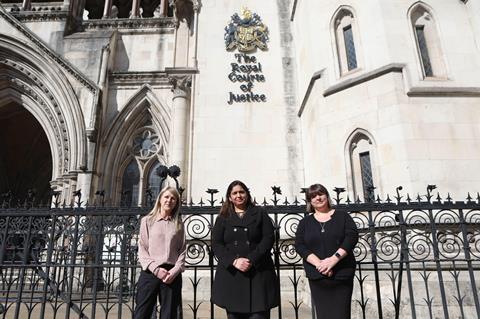
AltraLaw
AltraLaw, named for its association with ‘altruistic’, was founded around the same time as Aria Grace by former Slater and Gordon and Eversheds lawyer Nathan Vidini – although neither he nor Healy were aware of each other until much later.
A leading employment specialist, Vidini decided early in his career that his place was advising individuals rather than employers. In traditional private practice, Vidini became uncomfortable with the constant push for larger and larger profits for partners or shareholders, an ethos that often comes at the expense of the mental health and happiness of employees. Seeking a way to deploy the vast wealth of the legal industry to do good, and act by his Christian values, the seed of the idea of a not-for-profit firm took hold.
Vidini says: ‘I have always loved law, particularly employment law. I know it sounds cliched but I got into law to help people. The not-for-profit law firm model allows me to help even more people, not just clients, by donating all the profits to charity.’
AltraLaw now has six lawyers, including Vidini, and three consultants. The firm specialises in employment law, primarily supporting employees in complex matters of unfair dismissal, whistleblowing and discrimination. Wills and probate advice are also a focus. Pay is commensurate with mainstream firms, while Vidini pays himself only what he needs.
He explains: ‘Traditional law firms are very competitive. You must always do better than the person sitting next to you, and in most of the firms I have worked, fighting to be seen or bill the most fees is encouraged by partners. At AltraLaw there are no internal politics or fee-earning targets, and no ‘equity share’ to fight over. We aim to be a nurturing and supportive place for lawyers as well as clients.’
And instead of pro bono targets being set on top of fee-earning obligations, the AltraLaw team has paid leave to volunteer at a law centre or a charity of their choice.
Profits are distributed to a range of charities chosen by the firm’s clients to fight poverty and assist those in need. With many clients affected by poor mental health and even suicidal thoughts because of discrimination or bullying, mental health charities such as MIND are often the recipients. Child-focused charities such as Ty Hafan, Sparkle, and Noah’s Ark, as well as the Welsh Refugee Council, have also benefited from help including free advice and financial support.
Like Healy, when first mooted Vidini’s plans to launch a not-for-profit were met with bewilderment from fellow lawyers. ‘Most people were surprised, as it is such a simple idea, that no one else had created this type of law firm. Someone mentioned the marketing benefit, like a consumer choosing fair-trade coffee,’ says Vidini. ‘But clients don’t come to us because we are a not-for-profit. They come to us because of our reputation as the best employment lawyers for individuals in Wales and the south-west.’

Saltworks Law
The enactment of the Legal Aid, Sentencing and Punishment of Offenders Act in 2013 slashed legal aid funding, created legal aid deserts and fomented uncertainty over how vulnerable people without means would access legal advice. In response, ATLEU (Anti-Trafficking and Labour Exploitation Unit), which provides legal advice and support under a legal aid contract to survivors of trafficking and slavery, started to rethink its funding. The result was Saltworks Law, a not-for-profit CIC launched in 2017. The firm serves private immigration and employment law clients, with profits used to subsidise ATLEU’s charitable work.
Jamila Duncan-Bosu, a private claimant and respondent employment specialist and director at Saltworks, explains: ‘We looked at lots of different legal vehicles to support ATLEU. Using a CIC to create a not-for-profit law firm enables us to make profit from private work for clients who are not eligible for legal aid and channel that profit into ATLEU. It was on the money for what we wanted to achieve.’
Saltworks has maintained its focus on private employment and immigration advice and has recently taken on an education specialist. All five lawyers are self-employed consultants.
‘We are a very unusual structure in the market, but it has proved an effective way to fill the gap left by the changes to legal aid,’ says Duncan-Bosu. The team competes with conventional law firms and charges similar fees, with clients benefiting from several fixed-fee options. ‘It is important for us to be an ethical firm. Being a CIC fits in with our purpose to raise awareness of trafficking and modern slavery,’ she says.
Precious model
'This is not the nicey nicey show. Capitalism is a wonderful thing. But we are tempering radical capitalism, levelling the playing field, actually paying our lawyers more and focusing on life/work balance'
Lindsay Healy, Aria Grace
If there are any downsides to the not-for-profit structure, no one is saying. Certainly, in the early stages, these firms can be difficult to establish without a significant capital reserve, which is usually provided by founders. AltraLaw received free desk space for a year and business skills training from the Business Wales Accelerated Growth Programme, but no private funding.
Ensuring that compliance and regulatory requirements are up to date and followed is also a top priority. Not-for-profits cannot retain a large financial cushion because they are obliged to give so much away. ‘This is a precious model – we have to be careful to maintain it,’ says Healy.
The other battle is perception. Founders emphasise that having a philanthropic structure and the ‘not-for-profit’ label does not mean that clients receive a lesser service. The lawyers who serve them are often experienced former ‘Big Law’ practitioners empowered to set the terms of their working role – and used to getting results. ‘This is not the nicey nicey show,’ says Healy. ‘Capitalism is a wonderful thing. But we are tempering radical capitalism, levelling the playing field, actually paying our lawyers more and focusing on life/work balance.’

Not-for-profit future
Although the number of not-for-profit law firms in the UK is small, the pioneers of this radical legal structure hope that this will soon change. After all, it is in the spirit of the not-for-profit to want to share the many benefits with their peers. ‘We are a community of lawyers who support each other,’ says Healy. ‘And the sooner this culture-driven model can travel across the world the better for lawyers, the better for clients and the better for society.’
Katharine Freeland is a freelance journalist



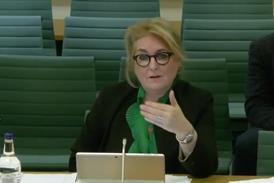










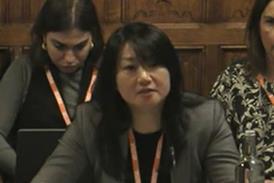



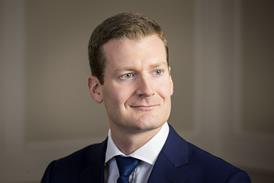
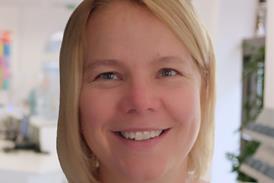








1 Reader's comment